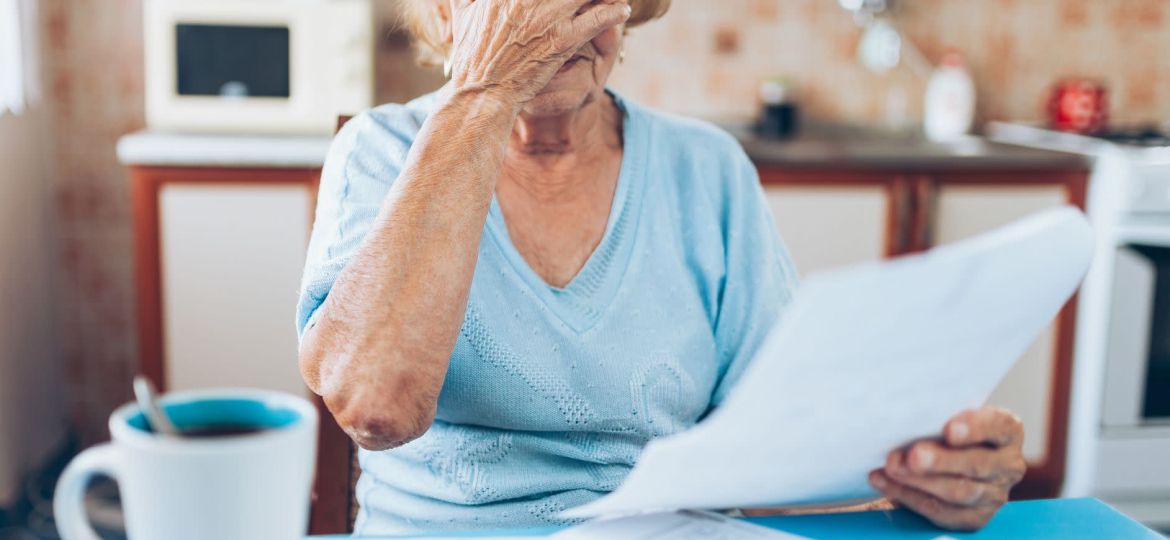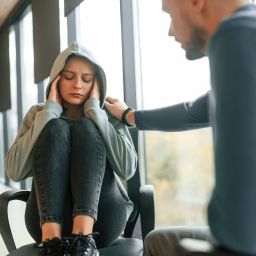
Abuse Has No Age: Financial Abuse Of Elders And Vulnerable Adults
by- Amanda Hildreth
Abuse truly has no age or limits. Financial Abuse is among the top types of Elder Abuse and constitutes over 38,000 cases annually (Tung et al. 2007). Elders and vulnerable adults are at an increased risk for Financial Abuse because they often need assistance from others to make financial decisions due to physical or cognitive deficiencies.
What Is Elder And Vulnerable Adult Financial Abuse?
Elder and Vulnerable Adult Financial Abuse is defined as, “use of an elderly or adult with a disability’s money, property, or other resources for monetary or personal benefit, profit or gain” (United States Department of Justice, 2022). Elders are considered to be over 60 and a vulnerable adult is a person over 18 that needs care services due to a disability, illness, or lacking the ability to protect themselves from abuse (Care Check, 2022).
Why Are Elderly And Vulnerable Adults Targets For Financial Exploitation?
Conditions such as dementia or other mental health conditions cause deficits in interpersonal communication and cognitive skills, and physical frailty can make it difficult for elders to make financial decisions. Predictability also plays a factor because of scheduled payments through social security. Vulnerable adults with illness may also receive disability benefits which are issued on a set schedule, making them vulnerable to Financial Abuse.
Elders typically have more available money than younger people due to working during their lifetime and investing, which makes them vulnerable to financial exploitation. Vulnerable adults may also have more money through disability and other benefits.
As elders age, their ability to make financial decisions clearly and concisely can decline, and vulnerable adults may never learn the skills needed to have a successful future. Illness is an even bigger challenge for elders and vulnerable adults, and an elderly or vulnerable adult may be reluctant or unable to seek help after they were abused financially. They may be embarrassed, fearful, or simply unable to seek help. They may fear retribution from the abuser or not know how to report the abuse.
Who Typically Commits Elder And Vulnerable Adult Financial Exploitation?
The main offenders for Financial Abuse in elders or vulnerable adults can often be a relative, spouse, or someone they trust. Most people may assume that strangers are more likely to commit financial exploitation, but research shows it is more likely to be a close family member. According to the National Center on Elder Abuse, 53% of elderly or vulnerable adults are victims by a family member of the victim (Nursing Home Abuse Center, 2021). Lawyers are also known for exploiting clients instead of instilling trust in vulnerable adults and elders. Nursing homes or caregivers may take advantage of their patients by taking cards out of the victim’s wallet, writing checks in their name, or stealing cash, etc. Strangers also trick these individuals through phone and email scams, sweepstakes, and even state they work for their bank. Strangers may even say they are a relative who needs help with money to trick the individual into a scam and fraudulently steal their money (Nursing Home Abuse Center, 2021).
Why Individuals Perpetuate Elder and Vulnerable Adult Financial Abuse
Many people Financially Abuse elders or vulnerable adults in the interest of getting the money over worrying about the well-being of the elder or vulnerable adult. Family members may believe the money is their own due to inheritance or a will. They also believe they should be compensated for taking care of their family members. Family members may be having their own financial issues or struggle with addiction. Some fear they will not have anything left from their family members after they pass (Nursing Home Abuse Center, 2021). Besides family members, most people who commit Financial Abuse do not care about the harm they are doing to the elder or vulnerable adult. They only care about getting the money.
Warning Signs Of Financial Abuse
There are many warning signs that Financial Abuse of an elder or vulnerable adult is happening, including:
- Checks or banking information sent to the abuser
- Forgery to obtain money via check or other legal documentation
- Significant and suspicious bank activity
- Changes to power of attorney or will
- Forcing signatures on documents the individual cannot comprehend
- Unpaid bills (Nursing Home Abuse Center, 2021).
You can also look for signs if you suspect a specific person of committing financial exploitation so you can take action. A person may abuse an elder or vulnerable adult if the Victim refers to the stranger or family member as a new best friend. The Abuser may charge more for services, stating it is only to meet the Victim’s needs. There may be signs of financial information changes or overall financial problems. Additional red flags are the Abuser makes important financial decisions for the Victim, sets unreasonable expectations, or shows an alarming amount of interest in the elderly or vulnerable individual’s expenses.
How Can You Help if You Suspect Financial Abuse?
If you suspect Financial Abuse of an elder or vulnerable adult, it is crucial to move quickly. There are several actions that you can take. Each situation is unique and depends on the evidence you found of abuse, the victim’s relationship with the abuser, and your relationship with the Victim.
- Talk to the Victim: Talking to the Victim can help us gain clarity and understand how they view the situation before taking action. The more we speak to the individual to hear their side of the story, helps them feel heard and will help us get to the bottom of what is happening. Communication can ultimately give us insight into who they are speaking with and help us pinpoint what assets are being affected.
- Gather Evidence: Gather the help of family members or others you trust to coordinate an investigation of any documentation, bank statements, and other resources you will need to ensure you have enough information to formulate a case.
- Contact the Victim’s Bank: Depending on bank guidelines, there are certain situations where banks may be able to stop payments, especially if there is an instance of suspicious activity on an account.
- Contact the Local Adult Protective Services Office: APS offices investigate all forms of Financial Abuse, fraud, scams and more. The state where the individual resides has their own APS office, and can be contacted through the official website on NAPSA-Now.org.
- Contact Police: Your local police department can be key in discovering fraud or theft and prosecuting individuals involved (Better Health While Aging, 2023).
If you suspect that an elder or vulnerable adult is experiencing Financial Abuse, it is crucial to take action. Be respectful of the Victim’s feelings, but try to find out as much information as possible and take the information to the proper resources.
How To Reduce The Risk Of Financial Abuse
In order to reduce the risk for your loved ones or those you know who are elderly or a vulnerable adult, you can assist with simplifying their finances. You can assist with reducing the number of accounts they possess and have the individual add you as an authorized user on the account. This way, you can keep a close eye on their financial situation and spot any suspicious activity. Learn about common methods of fraud and Financial Abuse perpetrated by strangers, such as lottery scams, imposter scams, phone and email communication, and more.. Lastly, ensure your family member, friend, or loved one has a Power of Attorney. This safety measure requires more than one signature for large transactions, and gives a third party the power to revoke. This measure will ensure the utmost safety for the elderly family member, friend, or vulnerable adult and ensure they are protected, safe, and secure.
We at ARO are here to support you in your personal healing journey to complete well-being. We bring awareness and education to 13 different types of abuse including Narcissistic, Sexual, Physical, Psychological, Financial, Child, Self, Cyberbullying, Bullying, Spousal, Elderly, Isolation, and Workplace, and help others heal and find peace. Please support our efforts by going to GoARO.org to learn how you can make an impact on the Abuse Care Community and provide life-saving financial assistance with a donation.
References
Care Check. Vulnerable adults’ definition and the care act that protects them. (2022, May 10). https://www.carecheck.co.uk/the-definition-of-vulnerable-adults-and-the-services-they-receive
Kernisan, L. (2023, January 12). Financial exploitation in aging: what to know & what to do. Better Health While Aging. https://betterhealthwhileaging.net/financial-abuse-what-to-know/
Nursing Home Abuse Center. (2021, June 1). Elder financial abuse: financial abuse of the elderly. https://www.nursinghomeabusecenter.com/elder-abuse/types/financial-abuse/
Tung, E. E., Schipper, A. M., & Takahashi, P. Y. (2007, July). Detecting financial exploitation of vulnerable adults: guidelines for primary care providers and nursing home medical directors. HMP Global. https://www.hmpgloballearningnetwork.com/site/altc/article/7447
United States Department of Justice. Civil Financial Exploitation. 10 G.C.A. § 21002. (2022). https://www.justice.gov/elderjustice/prosecutors/statutes
Wilson, Kehoe and Winingham LLC. Why seniors are targets of financial abuse and exploitation. (2020, February 20). https://www.wkw.com/nursing-home-elder-abuse/faqs/are-the-elderly-vulnerable-to-financial-exploitation-and-abuse/
















